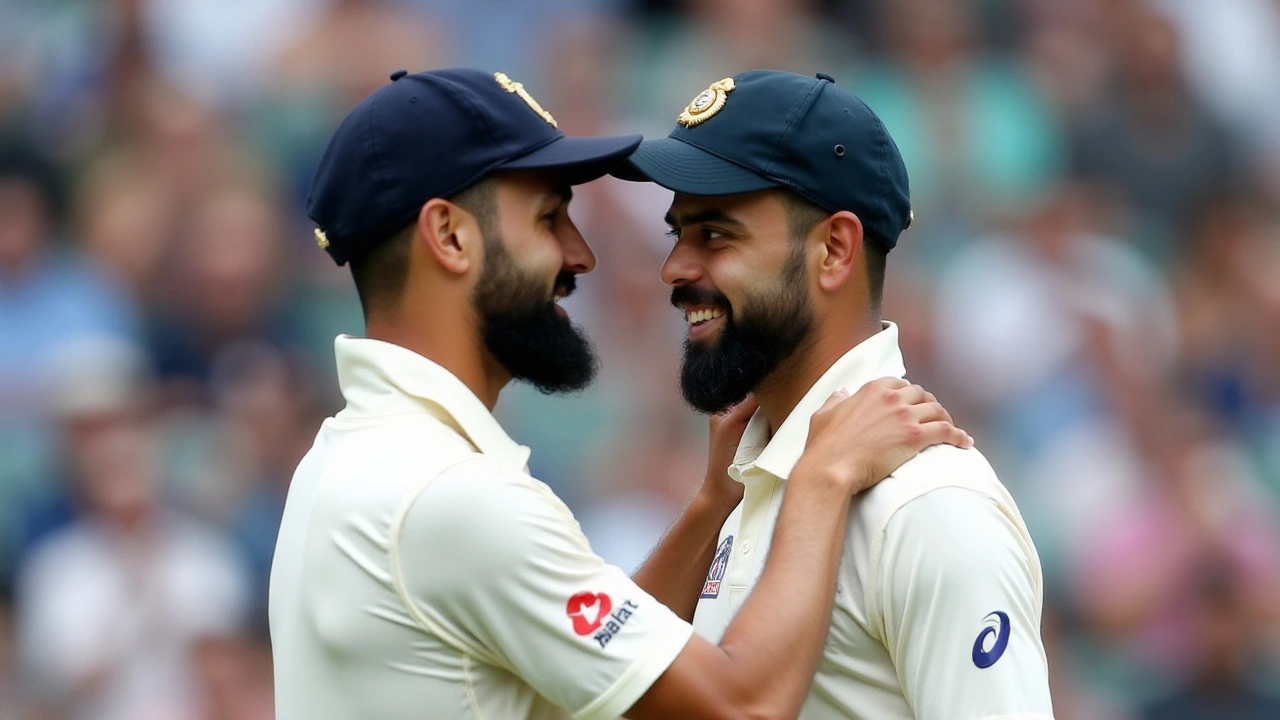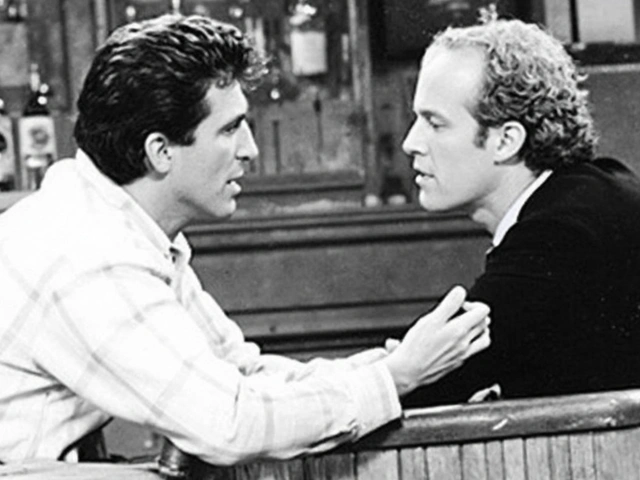The Heated Encounter that Shook Boxing Day
The Boxing Day Test between India and Australia at Melbourne is always a celebrated cricketing event, drawing fans from across the globe. Set against the backdrop of a storied rivalry, the match spanned more than just the cricketing talent on display; it encapsulated the passion and intensity that both teams bring to the field. This year's encounter was no different, but it marked a particularly memorable moment when Indian cricket maestro, Virat Kohli, found himself in the midst of a heated exchange with Australian newcomer, Sam Konstas. The drama unfolded shortly after the tenth over when, purely by accident, the two players bumped shoulders while crossing the pitch.
An Accidental Collision Sparked a Verbal Exchange
While such incidents are not uncommon in international cricket, what followed was a swift escalation of emotions. Passions ran high as the verbal confrontation between Kohli and Konstas caught the attention of not only the spectators but also the match officials. Cricket, a sport cherished for its gentlemanly spirit, found itself momentarily overshadowed by this fiery exchange. Usman Khawaja and umpire Michael Gough quickly intervened to calm the situation, ensuring the spirit of the game remained intact. Kohli's interaction with Konstas, a debutant braving his first major test, reminded everyone of the fine line between competitive zeal and sportsmanship.
ICC's Response and Kohli's Reaction
In the aftermath, the International Cricket Council (ICC) was swift in its action. Recognizing the breach of its Code of Conduct, the ICC reviewed the footage and concluded that Kohli's actions merited a sanction. As a result, the sports governing body fined him 20% of his match fee and registered a demerit point against his record. This wasn't the first time Kohli, known for his fiery competitiveness, had been censured for his on-field behavior. However, in a noteworthy acceptance of the decision, Kohli chose not to contest the sanctions, perhaps acknowledging the need for maintaining decorum in the heat of the moment.
Sam Konstas: A Cool Head Amidst the Storm
For Sam Konstas, the debutant embroiled in this incident, the match was a significant chapter in his budding career. Speaking to the media post-match, Konstas downplayed the altercation, attributing it to the natural tensions of the game. 'I was just doing my gloves, and I think he accidentally bumped me, but that's just cricket. It is the tension,' he remarked. His calm and composed handling of the situation, both on the field and off it, won him praise. His innings, characterized by a fearless attitude against India's formidable bowling lineup, stood testament to his potential as a future star for Australia.
Insights from Ricky Ponting and the Cricketing Fraternity
The incident drew reactions from across the cricketing world, with opinions varying widely. Former Australian captain Ricky Ponting offered a candid take, suggesting that Kohli had unnecessarily instigated the confrontation. 'Have a look where Virat walks. Virat has walked one whole pitch over to his right and instigated that confrontation. No doubt in my mind whatsoever,' Ponting observed. His remarks resonated with many who felt that Kohli’s aggressive demeanour occasionally crossed the line. This public critique added another layer to the conversation surrounding on-field behavior and the need for players to manage their competitive instincts carefully.
A Critical Moment in the Border-Gavaskar Trophy
The match itself was strategic for more reasons than the on-field drama. It was part of the ongoing Border-Gavaskar Trophy series, a highly contested competition between two cricket #26ec giants. With the series finely balanced at 1-1, both India and Australia were fully aware of the importance of gaining an upper hand. Securing a series lead could significantly bolster their standings in the ICC World Test Championship final, raising the stakes even higher. This broader context adds depth to understanding why emotions ran so high during the match. Each session, each ball bowled, and each run scored was vital to the destiny of the competing sides.
The Underlying Passion of International Cricket
Beyond the incident, international cricket thrives on its narratives—stories of grit, glory, and occasionally, heated encounters. Kohli, as a seasoned player with numerous accolades, embodies the spirit that pushes players to their limits. His run-ins with controversies may appear as blemishes to some, but for others, they are a testament to his aggressive playing style, which, more often than not, has led India to victories. Meanwhile, Konstas’ coolness under pressure has already begun to weave a promising narrative for his career in Australian cricket.
The Path Forward for Players
As teams continue to jostle for supremacy, the cricket fraternity hopes that players will uphold the ethos of sportsmanship while exhibiting competitive fervor. The curious case between Kohli and Konstas will undoubtedly serve as a reference point for future encounters. While it highlights the pressure and passion intrinsic to cricket, it also underscores the importance of boundaries within those competitive interactions. For Kohli, this incident serves as a reminder of both the privilege and responsibility that his status as a key player brings.
Cricket: A Game of Skill and Spirit
At its heart, cricket remains a game that thrills—offering moments of ecstasy, elation, and sometimes drama. As players like Kohli and Konstas continue to grace the pitch, the community of fans awaits their next performances, hoping that the current chapter becomes a lesson for all. Future matches will undoubtedly be a test of skills, strategy, and restraint in a sport that mesmerizingly balances passion with patience.






